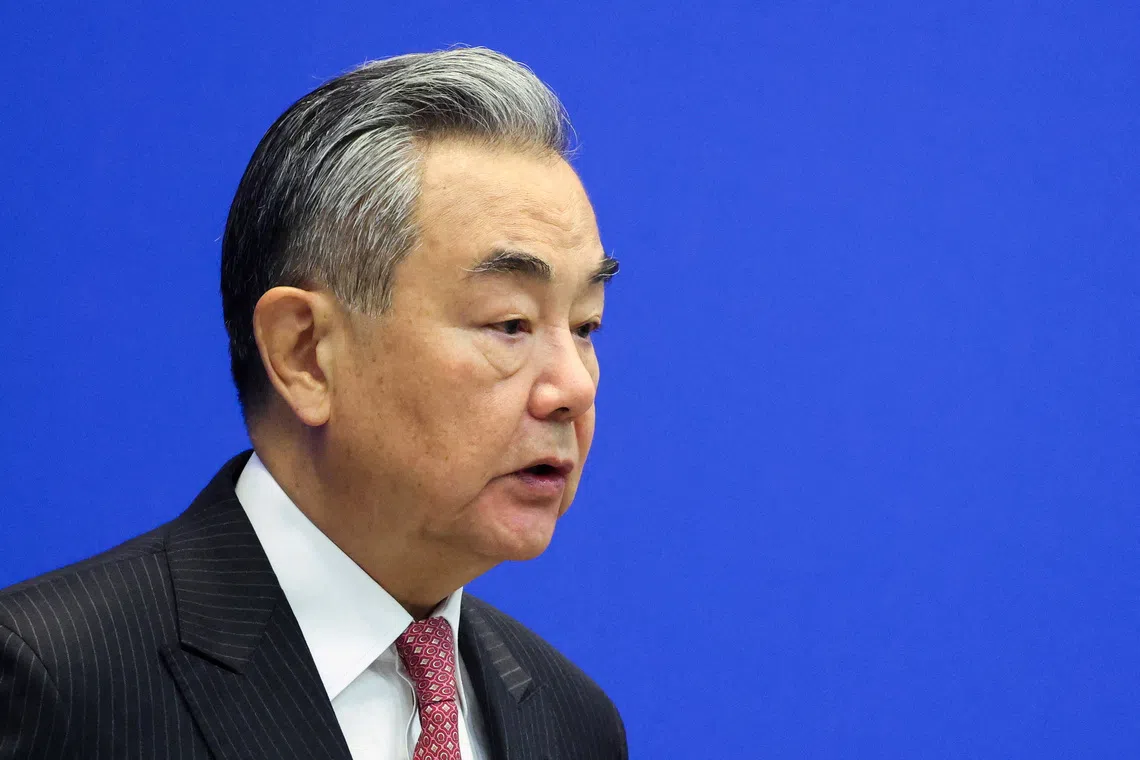China 'Shocked' by Japan's Taiwan Stance: Wang Yi Accuses PM of Military Intervention Threat, Escalating Crisis
 China
International Relations
China
International Relations

China's Foreign Minister Wang Yi condemned Japanese PM Sanae Takaichi for suggesting military intervention over Taiwan, escalating a two-week diplomatic crisis.
China Accuses Japan of "Shocking" Taiwan Stance, Escalating Crisis
A significant diplomatic row has erupted between China and Japan, with Chinese Foreign Minister Wang Yi expressing profound dismay over remarks by Japanese Prime Minister Sanae Takaichi concerning Taiwan. Beijing has accused Tokyo of sending a “shocking” and “wrong signal” that breaches a critical red line, signaling a severe escalation in their bilateral relations.
Beijing Condemns Japanese PM's Comments
Minister Wang Yi, the highest-ranking Chinese official to publicly address the issue, condemned Prime Minister Takaichi's comments from November 7. During a parliamentary session, Takaichi suggested that a hypothetical Chinese attack on democratically governed Taiwan could prompt a military response from Tokyo. This statement has been interpreted by China as an attempt at military intervention in Taiwan, which Beijing considers its own territory and has not ruled out taking by force.
UN Involvement and Mutual Rebuttals
The diplomatic fallout has been swift and far-reaching, impacting trade and cultural ties between the two Asian giants. The crisis deepened when, on November 21, China formally raised the issue with UN Secretary-General Antonio Guterres, asserting its right to self-defense. Japan's Foreign Ministry quickly dismissed China's claims to the UN as “entirely unacceptable” on November 22, reiterating its commitment to peace.
Taiwan's government, which vehemently rejects Beijing's sovereignty claims and maintains that only its people can decide its future, also weighed in. On November 23, Taiwan’s Foreign Ministry condemned China's letter to the UN, calling its content “rude and unreasonable,” accusing it of maliciously distorting historical facts, and violating Article 2(4) of the UN Charter, which prohibits the threat or use of force in international relations.
China Warns of "Resolute Hit Back" and Historical Reckoning
In a strongly worded statement, Wang Yi declared that China must “resolutely hit back” against Japan’s actions, not only to protect its sovereignty and territorial integrity but also to defend the “hard-won postwar achievements secured with blood and sacrifice.” He further warned that if Japan “persists in its wrong course” and continues on this path, all nations and peoples would have the right to “re-examine Japan’s historical crimes” and “resolutely prevent the resurgence of Japanese militarism.”
Economic Ties at Risk
This dispute holds significant economic implications, as China is Japan’s largest export market after the United States. In 2024, China imported approximately US$125 billion worth of Japanese goods, primarily industrial equipment, semiconductors, and automobiles, according to UN Comtrade data. The ongoing diplomatic tensions threaten to disrupt this vital economic relationship.